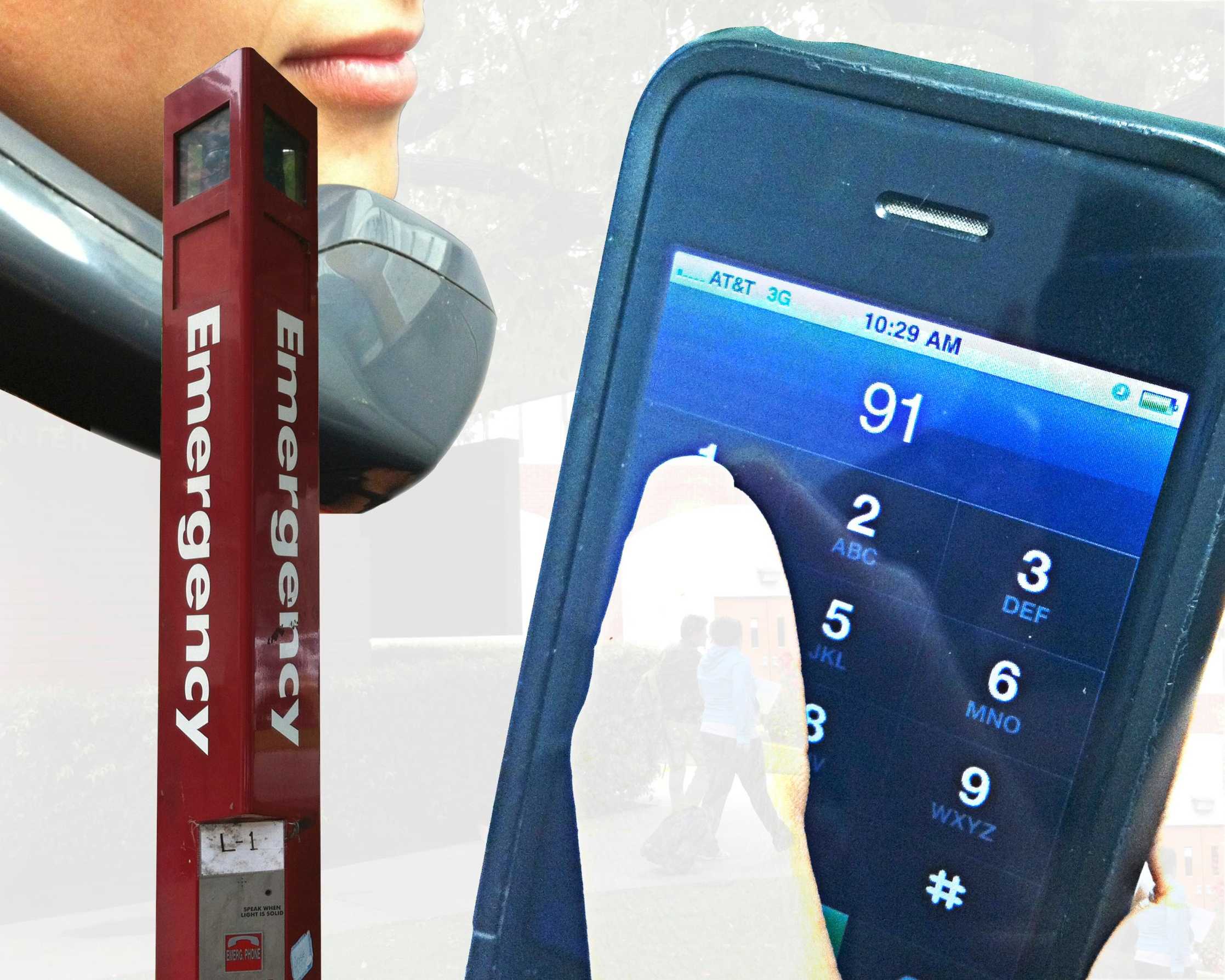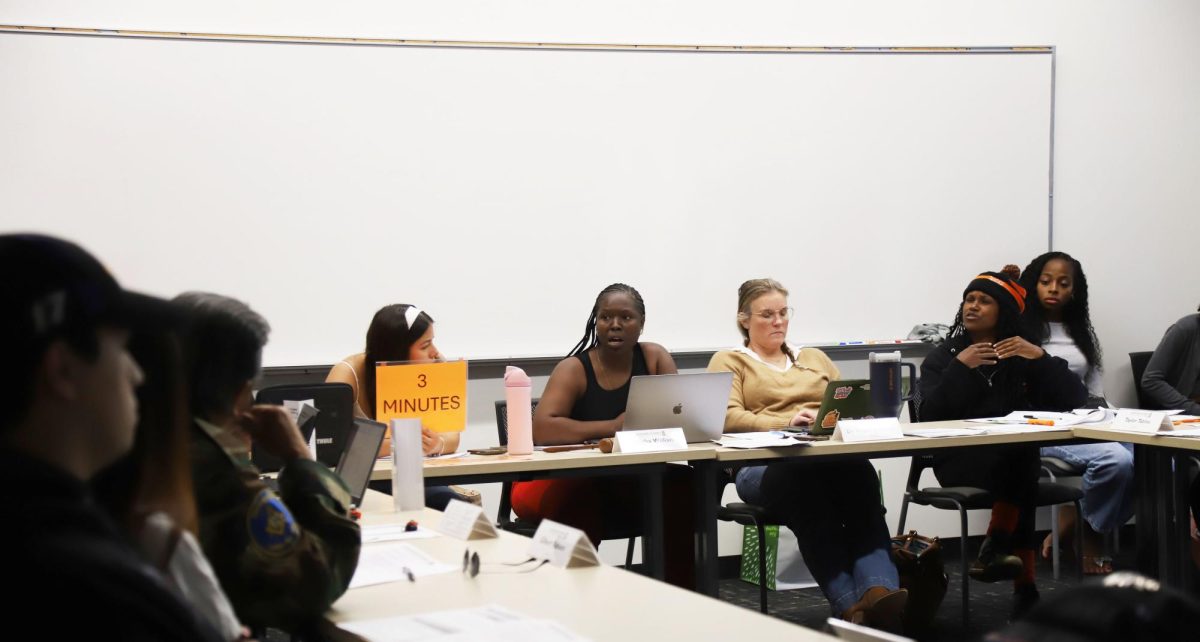By Franco Villalobos / Staff Writer

Misjudgement (Diego Alvarez / Staff Photographer)
By Franco Villalobos / Staff Writer
The national emergency number 911 was created so that people could call local police authorities for help in a time of crisis or emergency. Unfortunately, there have been more than a few mishandled cases at the cost of the caller’s life.
According to CBS Denver.com, on April 1 at approximately 4:10 a.m. a gentleman by the name of Jimma Reat, 25, along with family members and a friend, were on their way back home in a rental Dodge Charger.
As they were driving down Sheridan Boulevard a few unidentified male suspects in a Jeep Cherokee began throwing miscellaneous items at the Dodge.
According to Sony Jackson from Denver police, the suspects in the Jeep threw a bottle at the victims’ car, breaking the rear window.
Shortly after, one of the suspects pointed a handgun at the victims in the Dodge Charger. Jimma Reat and his company managed to escape from the danger.
The victims then did what everyone is programmed to do in a situation such as this and dialed 911 for help.
Reat’s cousin Ran Pal, who was also in the Dodge Charger, called 911 to report what had happened.
During the call the 911 dispatcher instructed them to return to the location where the incident had happened in order for them to receive police assistance.
Reat and the 911 dispatcher argued over returning to the scene, though the dispatcher won the argument.
In the dispatcher’s defense, Reat and his company were no longer within local police jurisdiction.
Reat and his group trusted the instructions of a professionally trained 911 dispatcher and returned to the location where they found themselves with the suspects in the Jeep Cherokee again.
This time, the suspects’ malicious actions did not break another window, they took the life of Jimma Reat.
Later, during a news conference, Carl Simpson, executive director of Denver 911, said that the dispatcher followed “lower level policies”, where a driver is to return to the scene if it was a minor hit and run accident for police assistance.
The Executive Director also said the dispatcher should have been aware that this was a “higher-level” event, meaning someone’s life was being threatened.
It appears that the dispatcher that took the call has been placed on leave while authorities investigate the case.
Ernie Fransseen, Denver 911 operations manager sent out an apology to Reat’s family.
“We have policies that say we could have responded outside of Denver or could have involved other jurisdiction,” said Ernie Fransseen.
It is hard to imagine that if a call to 911 was never made, this nightmare would have just ended with a broken window on an insured rental vehicle.
Reat and his group trusted in the guidance of the dispatcher just like most others would do.
Even 911 is not perfect. Though there are highly trained specialists on the other end of the phone line, there is still plenty of room for human error.
In this case, and in many other cases, a fatal error.
In this particular story there are many unanswered questions. How did the dispatcher not know what procedure to follow?
According to Denver 911 it was a misjudgment on the dispatcher’s behalf and did not assess the situation correctly, though isn’t that what these dispatchers are trained to do in the first place?
The dispatcher was clearly at fault here. When dispatchers make decisions, they have lives in their hands.
After reading many other reports of mishandled 911 calls it becomes clear that 911 dispatchers are in fact trained, but how many different types of emergencies can you really be trained for?
Perhaps we need to look at the way they are trained or even go as far as to how much our states fund these 911 call centers to find out if these dispatches really are fully and properly trained for any and every situation.
Another factor would be the type of people who are actually hired to answer these calls.
Do we have people that actually care for others in danger and want to help?
What about all the false alarms 911 receives when someone calls as a prank or for a meaningless reason?
Real emergency calls have been confused with pranks in the past. It is safe to assume that dispatchers get frustrated with all of the pranks they get and start to take situations less seriously.
According to National Emergency Number Association, 45 percent of calls in 2011 were false alarms.
We could all help and become aware of the way our 911 centers are run by looking up the National Emergency Number Association or log on to Votesmart.org.
We could strengthen or help reform our 911 system by logging on to existing projects like the Denise Amberlee project (deniseamberlee.org).
If we put more information about the 911 call centers out in the open to educate people on the procedures and the incident levels we may be able to understand why this misunderstanding happened.
No matter the excuse, it comes down to someone in need dialing 911 and the dispatchers’ decisions and knowledge to carefully assess the situation and give the right direction to the caller.






